Hey there, friend. If you’ve just finished a course of Mavyret and you’re wondering whether anything strange might pop up now that the pills are gone, you’re not alone. Lots of people feel a mix of relief (the virus is gone!) and a little nervousness about “what comes next.” Let’s sit down, chat, and walk through exactly what can happen after you stop Mavyret, why it happens, and how to stay safe and comfortable.
Quick Answer
Most folks finish Mavyret without any new problems, but a small percentage may notice lingering fatigue, mild headaches, or, if they had past hepatitis B exposure, a possible HBV re‑activation. Those warning signs usually show up within the first few weeks and can be managed with simple steps and a follow‑up lab check at around 12 weeks.
Why Symptoms Appear
Underlying Mechanisms
When you take Mavyret (glecaprevir + pibrentasvir) you’re essentially telling the hepatitis C virus (HCV) to shut down. That sudden loss of the virus can trigger a few body adjustments:
- HBV re‑activation – If you ever carried hepatitis B, the immune system’s focus on HCV can let HBV flare up once the HCV is gone.
- Immune rebound – Your immune cells, freed from fighting HCV, may temporarily over‑react, leading to mild aches or fatigue.
- Residual drug metabolites – Tiny amounts of Mavyret linger for a few days, sometimes causing brief side‑effects even after the last pill.
Data Snapshot
| Source | % Reporting Post‑Treatment Symptoms | Most Common |
|---|---|---|
| VA “Managing Side Effects of Mavyret” (2017) | 5‑7 %* | Fatigue, headache |
| FDA post‑marketing safety (2023) | 0.1 % serious HBV flare | Jaundice, dark urine |
*The VA study tracked patients for up to 12 weeks after therapy. according to the Veterans Health Administration, most symptoms were mild and resolved on their own.
Common Post‑Treatment Symptoms
Headache & Fatigue
These are the classic “I’m still a bit off” feelings. They usually last 1‑2 weeks. A good trick is to stay hydrated (aim for 6‑8 glasses of water a day) and take acetaminophen (no more than 2 g per day) if the headache gets stubborn.
Nausea, Diarrhea & GI Upset
Gentle foods are your best friends here. The BRAT diet (bananas, rice, applesauce, toast) can calm an upset stomach. A splash of ginger tea or a few ginger snaps often does the trick, too.
Liver‑Related Warning Signs
Because HBV re‑activation can be serious, keep an eye out for:
- Dark or tea‑colored urine
- Yellowing of the skin or whites of the eyes (jaundice)
- Upper‑right abdominal pain or swelling
- Sudden, unexplained fatigue or loss of appetite
If anything like that pops up, call your provider right away—they’ll likely order a quick blood panel.
Quick‑Reference Checklist
- ✔︎ Drink at least 6‑8 glasses of non‑caffeinated water daily.
- ✔︎ Take acetaminophen ≤ 2 g/24 h for headache.
- ✔︎ Follow the BRAT diet if nausea persists.
- ✔︎ Schedule a post‑treatment lab at week 12 to confirm cure and screen for HBV.
Need to remember how you were dosed? Take a peek at our Mavyret dosing guide for a quick refresher.
Hepatitis B Reactivation – The Most Serious Risk
Who Is at Risk?
Anyone who has ever tested positive for hepatitis B core antibody (anti‑HBc) is technically “at risk,” even if the virus seemed dormant. Other red flags include:
- Past HBV infection (resolved or chronic)
- Coinfection with HIV
- Immunosuppressive therapy (e.g., steroids, chemotherapy)
What Reactivation Looks Like
Symptoms can be sneaky at first—think mild fatigue or a vague ache—but may quickly progress to:
- Jaundice (yellow eyes/skin)
- Dark urine or pale stools
- Elevated liver enzymes (ALT/AST)
- Fever, nausea, abdominal pain
The FDA’s boxed warning notes that re‑activation can occur up to 12 weeks after the last dose and, in rare cases, lead to fulminant hepatitis or even death.
Managing Reactivation
- Baseline testing – Before starting Mavyret, doctors check HBV DNA, HBsAg, and anti‑HBc.
- Regular monitoring – ALT/AST every 4 weeks during therapy, then again at week 12 post‑treatment.
- Prompt antiviral therapy – If HBV flares, a nucleos(t)ide analog like tenofovir is started immediately.
These steps turn a potentially scary scenario into a manageable, routine follow‑up.
How to Manage Post‑Treatment Side Effects
Lifestyle & OTC Remedies
Think of your body as a garden after a big storm—you’ve cleared out the weeds (the virus), now you need to water and tend it back to health.
- Hydration: Water, herbal teas, and clear broths keep the liver flush.
- Balanced meals: Small, frequent meals that are low in fat and spice reduce nausea.
- Gentle movement: A short walk or light stretching helps fatigue dissipate.
- OTC aid: Acetaminophen for headache, loperamide for occasional diarrhea, and ginger for nausea—always stay within recommended dosing.
When to Call Your Provider (Red‑Flag List)
Don’t wait if you notice any of these:
- Yellowing of eyes or skin
- Dark, tea‑colored urine or pale stools
- Severe abdominal pain, especially on the right side
- Persistent fever, dizziness, or confusion
- Unexplained, worsening fatigue beyond two weeks
These signs could indicate a liver issue that needs immediate attention.
Sample Doctor‑Patient Script
Patient: “I’m still feeling a bit tired two weeks after my last Mavyret dose.”
Provider: “Let’s order a quick liver panel and double‑check your hepatitis B status. If everything looks good, it’s probably just post‑treatment fatigue, but we’ll keep an eye on it.”
Frequently Asked Questions
Can I drink alcohol after finishing Mavyret?
Moderate alcohol is often okay, but if you have cirrhosis or any lingering liver concerns, it’s safest to discuss limits with your hepatologist.
How long do side effects last after stopping?
Most mild symptoms (headache, fatigue, nausea) fade within 1‑3 weeks. Serious liver‑related issues, if they occur, usually surface within the first 12 weeks.
Do I need a follow‑up blood test?
Yes—your doctor will want a check‑up at about 12 weeks post‑treatment to confirm a sustained virologic response (the “cure”) and to screen for HBV re‑activation.
Is there a generic version of Mavyret?
Currently the FDA has not approved a generic formulation. For cost‑saving strategies, see our article on Mavyret generic options (e.g., patient assistance programs).
How does Mavyret compare to Epclusa?
Both are highly effective, but they differ in dosing schedules, genotype coverage, and drug‑interaction profiles. A side‑by‑side comparison can be found in our Mavyret vs Epclusa guide.
Expert & Real‑World Insight
What Doctors Say
“We always screen for hepatitis B before starting any direct‑acting antiviral. The post‑treatment window is critical for catching a flare early,” says Dr. Lisa Chang, hepatology specialist at a major academic center.
Patient Story
John, a 48‑year‑old former smoker, finished his 8‑week Mavyret course in early June. Two weeks later he felt a slight headache and mild fatigue. He called his clinic, got a quick lab panel (all normal), and was advised to stay hydrated and rest. By week 4 the symptoms were gone, and his 12‑week test confirmed he was virus‑free. “I was nervous at first, but my doctor’s guidance made it easy,” he shares.
Take‑Away Summary
Finishing Mavyret is a huge milestone—congratulations! Most people wrap up the treatment without any new issues, but a handful may notice lingering fatigue, mild headaches, or—if they’ve ever had hepatitis B—a possible flare. The key actions are:
- Stay hydrated and eat light, balanced meals.
- Use over‑the‑counter remedies (acetaminophen, ginger, BRAT diet) for minor discomfort.
- Watch for serious liver signals (jaundice, dark urine) and call your provider immediately if they appear.
- Schedule a follow‑up lab at about 12 weeks to confirm cure and rule out HBV re‑activation.
Remember, you’re not alone on this journey. If you’re curious about the cost of therapy, the dosing schedule, or how Mavyret stacks up against other regimens, check out our related articles on Mavyret cost, Mavyret dosing, and what is Mavyret used for. And for a deeper dive into side‑effects, our dedicated Mavyret side effects page has all the details.
Take a deep breath, celebrate the cure, and give your body the gentle support it needs. You’ve earned it.



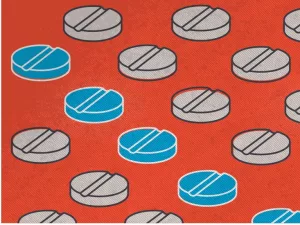
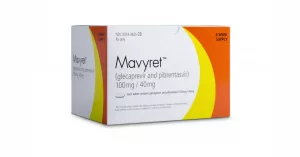
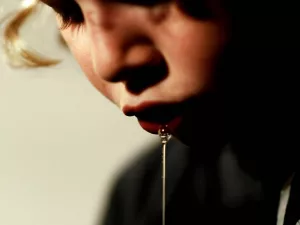
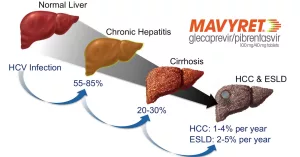
















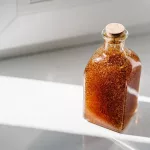
Leave a Reply
You must be logged in to post a comment.